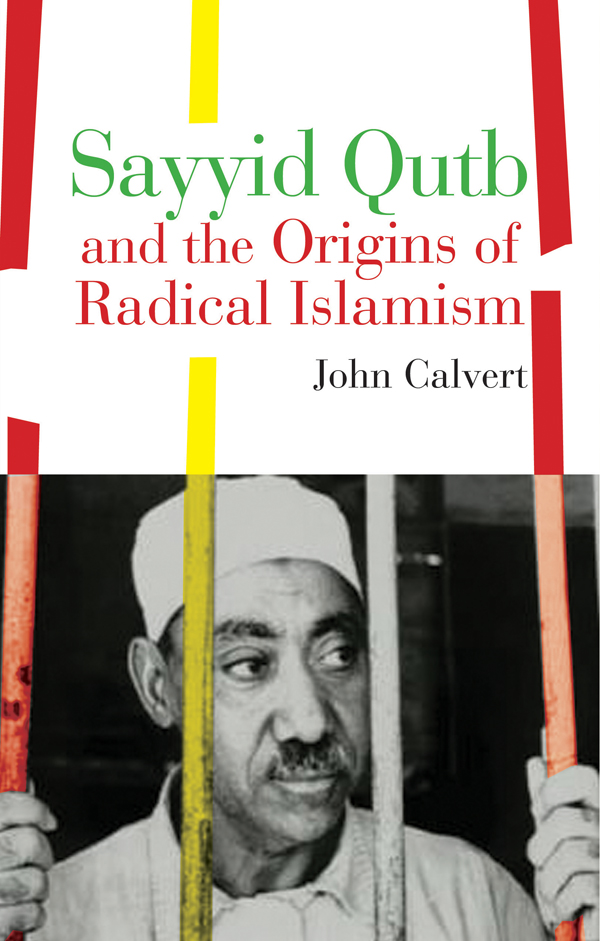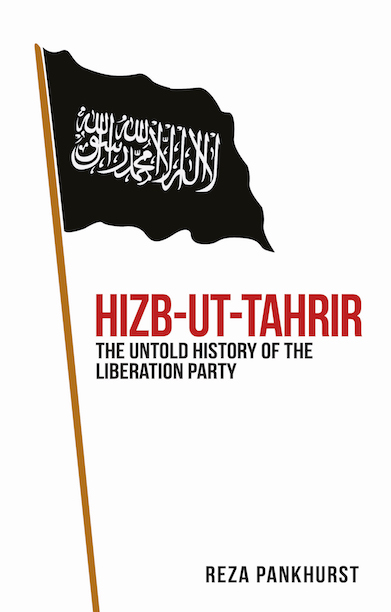Sayyid Qutb and the Origins of Radical Islamism
‘This rich and carefully researched biography sets Qutb for the first time in his Egyptian context. … It is no small achievement.’ — The Economist
Paperback edition includes revised and updated text
Description
The influential Egyptian ideologue Sayyid Qutb (1906-66) is credited with establishing the theoretical basis for radical Islamism in the post-colonial Sunni Muslim world. Lacking understanding of Qutb’s life and work, the popular media has often conflated his aims with those of bin Laden and Al-Qaeda, portraying him as a terrorist, ‘Islamo-Fascist’ and advocate of murder.
John Calvert, an expert on Middle Eastern dissent in general and Egyptian nationalism in particular, rescues Qutb from these misrepresentations. He recounts Qutb’s life, from his small childhood village to his execution by the regime, via the harrowing incarceration that injected religion into his Islamism. Most importantly, Calvert traces the evolution of Qutb’s thought in its context—one of the most eventful periods in Egyptian history. In these years of British tutelage, rising nationalism and Free Officer hegemony, Qutb rubbed shoulders with other great Egyptian thinkers, from Naguib Mahfouz to political giants like Taha Husayn and Nasser himself.
This is a sensitive exploration of the cultural, political, social and economic circumstances that shaped Qutb’s thought, leading him to repackage the Islamic heritage as a challenge to authority—including ‘infidel’ authorities that he did not see as truly Muslim.
Reviews
‘This rich and carefully researched biography sets Qutb for the first time in his Egyptian context, rescuing him from caricature without whitewashing his radicalism. It is no small achievement.’ — The Economist
‘Hefty and impressively researched … insightful’ — New York Review of Books
‘In one of the first serious English-language biographices of Qutb, Calvert puts this often misunderstood figure into his historical context, situating Qutb within the turbulent intellectual and political flow of Egyptian and Arab history. He expertly shows the development of Qutb’s thinking, from literary critic to Islamist, and powerfully details the impact of the repression and torture carried out by the regime of Gamal Abdel Nasser on his turn towards the stark, radical doctrines which have shaped generations of Islamist radicals. Fascinating details emerge in this book. . . . The Qutb which emerges from Calvert’s even-handed history is far more complex and interesting than the caricature of him which dominates popular understanding. Anyone interested in the evolution of Islamism in the 20th century should read it.’ — Atlantic Monthly
‘The best biographies balance the person, the person’s achievements, and the environment in which that person worked. This one of Sayyid Qutb (1906-66), considered by both friends and foes to be a founding father of radical Sunni Islamic thought, does just that. Calvert presents a portrait of Qutb worthy of a psychobiography, without the excesses of the genre.’ — Foreign Affairs
‘Given that Qutb is taught in a large (and increasing) number of campuses, and given that he has already been introduced to the general public in bestselling books such as Lawrence Wright’s The Looming Tower, the very publication of a Qutb biography is likely to attract considerable interest. The book not only constitutes what is likely to remain the definitive biography of Sayyid Qutb, it also offers crucial new insights on the post-1954 history of the Egyptian Muslim Brotherhood, another gaping hole in the literature. We are dealing here with a rare book that is likely to become a classic in the field of political Islam – An outstanding volume.’ — Thomas Hegghammer, Harvard University
‘Sayyid Qutb and the Origins of Islamic Radicalsm will become the standard intellectual biography of the most influential Muslim thinker of the twentieth century. Demonstrating a deep engagement with contemporary history, religious thought, and social theory, Calvert eschews the sensationalism that too often posits Qutb as the ideological ‘godfather’ of global jihad. An erudite and engaging writer, Calvert situates Qutb in time and place, tracing his political evolution, and exploring the power of his words, personality, and, ultimately, his divergent legacies. Neither hagiography, nor expose, Qutb finally gets his due’. — Joel Gordon, author of Nasser: Hero of the Arab Nation
‘Calvert … has produced a biography that is lively, sensitive, and methodical, and represents a landmark study of serious value to students, academics, and general readers alike. … Calvert’s study is as much a political history of modern Egypt through the prism of Sayyid Qutb as it is a biography of the man and a study of his thought.’ — Middle East Quarterly
‘Calvert’s book is a substantial contribution to the scholarship on radical Islamism and contemporary Muslim thought. It is a must read for academics, students, and those in the general public who want a more in-depth understanding of one of the most influential, controversial, and enigmatic Muslim personalities in modern Arab and Islamic history.’ — The Muslim World Book Review
‘An exquisite intellectual biography of Sayyid Qutb … This is the deepest exploration of Qutb I have seen in the English language and a recommended read for those in counter-terrorism, and understanding what aspects of radical ideologues al-Qaida chooses to ignore.’ — Youssef Aboul-Enein, Small Wars Journal
‘An extremely thoroughly researched, sober, and careful book that seeks to cover all of Qutb’s life, activities, and writings and situate them in their Egyptian context. In many ways, Calvert’s book shows what scholarship can do at its best. For those who already know something about the subject, there is an account rich in context, new details, and deeper interpretations. For a broader audience, there is an accessible and fair treatment of Qutb and his ideas that should replace some recent rather puzzling accounts that view Qutb through a particular and narrow lens.’ — Review of Middle East Studies
Author(s)
John Calvert is Professor of History at Creighton University, USA. His research focuses on social protest and political resistance movements in the modern Middle East; Egyptian nationalism; and the ideological origins of Al-Qaeda. He is co-editor and translator of Sayyid Qutb's A Child from the Village.






